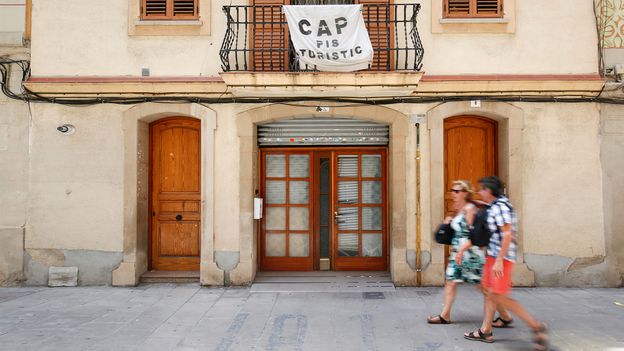On 21 June, Barcelona mayor Jaume Collboni announced plans to ban short term rentals in the city starting in November 2028. The decision is designed to solve what Collboni described as “Barcelona’s biggest problem” – the housing crisis that has seen residents and workers priced out of the market – by returning the 10,000 apartments currently listed as short-term rentals on Airbnb and other platforms into the housing market.
Barcelona is not the only city to be strongly regulating – or even banning – short-term rentals outright. It has been illegal since September 2023 to rent out an apartment as a short-term let in New York City unless you are registered with the city and you are present in the apartment when someone is staying – a change also made to assuage the city’s housing crisis. Berlin banned Airbnbs and short-term rentals back in 2014, bringing them back under tight restrictions in 2018; and in many of California’s coastal cities, including Santa Monica, short-term rentals are either banned or highly restricted.
In British Columbia, Canada, Premier David Eby put the issue succinctly as he clarified new short-term rental rules: “If you’re flipping homes, if you’re buying places to do short-term rental, if you’re buying a home to leave it vacant, we have consistently, publicly, repeatedly sent the message: Do not compete with families and individuals that are looking for a place to live with your investment dollars.”



It enables random Joes with an extra room or even couch or away for a while to actually find someone to take up their offer. Airbnb was one of the many couchsurfing platforms back in the days, one that managed to have global appeal and thus rushed ahead, and back in the days the offers were indeed of the bed and breakfast type at most. More commonly, “yeah we have a convertible couch and yep there’s some cheerios if you want”. Or even “hey we have a farm and there’s hay in the barn to sleep on there’s going to be potatoes, onions, eggs and ham for breakfast”. That’s good allocation of resources, and the likes of airbnb help using those resources more efficiently.
Investment sharks swooping in has been regrettable, but the only reason they were able to was because cities etc. had insufficient regulations. They didn’t bother to before because the micro-hotel business was negligible and didn’t have any noticeable market impact, now it does and thus they need to regulate.
And at least the Berlin regulations are furnished precisely to bring these kinds of platforms back to their original purpose: You can either yourself live in the apartment while the guest is there, or you can restrict your rental to a couple of weeks per year, if you don’t, you need a hotel license. And there’s no hotel licenses to be had for apartments in a residential zone in a housing crisis. If you’re trying to skirt those regulations you’ll soon find out that finance ministries in Germany have their own police forces. Especially in Berlin you have literally the whole population to deal with, a population which carried a referendum to socialise landlords owning more than 1000 apartments, they are going to rat you out.
The issue here isn’t the idea of micro rentals, those have existed since time immemorial, the issue is capital capturing politics to avoid having proper regulation put into place so that they can exploit market failure.
No the issue is literally the micro rentals. Because before that, we had couchsurfing. Which was all the great things about spending time in a different city staying with locals WITHOUT stupid infrastructure to fuck up the whole country